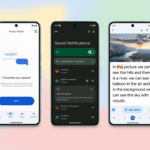1. Understand the Importance of ECG and Heart Rhythm
In addition to monitoring your heart rate, it’s crucial to pay attention to your heart’s rhythm – the pattern of its beats. Dr. Jacqueline notes a growing interest among patients and healthcare providers in using consumer-friendly electrocardiography (ECG) apps that have been cleared by the FDA for monitoring heart health. Recent guidelines from the American Heart Association and American College of Cardiology emphasize the value of using consumer-accessible ECG devices to detect irregular heart rhythms like atrial fibrillation (AFib) in patients who require cardiac monitoring. Fitbit Sense, Fitbit Sense 2, Fitbit Charge 5, Charge 6, and Google Pixel Watch all offer an ECG app that can detect abnormal rhythms and provide valuable insights into your heart’s electrical activity. By using this feature, you can take charge of your heart health and increase your health literacy.
2. Track Your Sleep Quality for Better Heart Health
While exercise is vital for a healthy heart, so is quality sleep. Dr. Jacqueline emphasizes the importance of adequate and restful sleep for cardiovascular health. Research suggests that poor sleep can heighten the risk of heart disease, high blood pressure, elevated blood sugar, and increased cholesterol levels. Fitbit’s sleep tracking features, such as monitoring sleep stages, setting sleep goals, and assessing your Sleep Score, can help ensure you not only sleep enough but also sleep well. Additionally, the Premium Daily Readiness Score considers your sleep, heart rate variability, and recent activity to recommend suitable workouts, helping you understand whether your body is ready for intense exercise or needs a day of rest. Remember, taking care of your heart involves both the activity your body performs and the rest it deserves, both during the day and at night.









